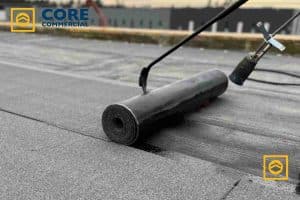Working with a roofing contractor goes beyond choosing the right company—it’s about setting clear expectations and keeping open communication. From timelines and cleanup to payments and trust, knowing what to ask and how to prepare makes the process less stressful and more successful. Learn practical tips to avoid miscommunication and ensure your roofing project is completed on time, within budget, and with peace of mind.
Table of Contents
Understanding the Role of a Roofing Contractor
A roofing contractor is more than just a builder. They act as a project manager, problem solver, and guide throughout the process. They coordinate materials, manage crews, and ensure your home is protected during installation or repair.
Many homeowners make the mistake of treating the contractor like a one-time service provider instead of a partner. When you see them as a partner, you create space for collaboration, making it easier to address unexpected challenges like weather delays, material shortages, or hidden structural issues.
By recognizing the contractor’s role, you’ll set a tone of respect and cooperation, which usually leads to smoother work and higher-quality results.
Setting Expectations From the Start
Clear expectations prevent most conflicts. Before work begins, homeowners should:
- Discuss timelines in detail. Ask about start and completion dates, but also discuss what happens if bad weather or delays occur.
- Review the scope of work. Ensure you know exactly what is being done, whether it’s a full replacement, partial repair, or additional tasks like gutter replacement.
- Clarify cleanup responsibilities. Roofing projects create debris. Ask if the crew handles disposal, magnet sweeps for nails, and yard protection.
Putting these details into writing—whether through a signed contract or a written agreement, keeps both sides accountable.
Importance of Communication
Good communication is the backbone of a successful roofing project. Many homeowners hesitate to ask questions, fearing they’ll annoy the contractor. In reality, most professionals appreciate clear, honest dialogue.
Best practices for communication include:
- Decide on a main point of contact. Some companies have a project manager, while others use the contractor directly.
- Agree on preferred communication methods. Whether by phone, text, or email, knowing how updates will be delivered helps you stay informed.
- Schedule regular check-ins. For longer projects, ask for daily or weekly progress updates.
When both parties are proactive in communication, it reduces misunderstandings and ensures problems are handled quickly.
Building Trust With Your Contractor
Trust is not automatic—it’s built over time through consistency and transparency. Homeowners can strengthen trust by being upfront about concerns and asking for clarification instead of making assumptions.
Contractors, in turn, earn trust when they deliver what they promise, show up on time, and communicate changes promptly. Documenting each step with photos, invoices, or written notes can also provide reassurance.
The stronger the trust, the smoother the collaboration. Projects with trust rarely escalate into disputes.
Handling Payments and Budget Concerns
Money is often the biggest source of tension. To avoid problems, make sure you:
- Understand the payment schedule. Most roofing projects require a deposit, followed by progress payments, and a final payment upon completion.
- Never pay in full up front. Reputable contractors won’t ask for this.
- Ask for itemized invoices. This helps you see exactly what materials and labor you’re paying for.
Discussing budget limits early also prevents surprise add-ons. If unexpected costs appear, like rotten wood under the shingles, you’ll already have a process for handling changes.
Preparing Your Home Before Work Begins
Roofing is a messy, noisy project. Preparing your home makes life easier for you and your contractor.
- Move vehicles away from the driveway to provide space for dumpsters and deliveries.
- Cover or relocate outdoor furniture and plants to protect them from falling debris.
- Inform neighbors about the project so they’re not caught off guard by noise.
- Secure valuables inside your home, since hammering can sometimes shake loose items from walls or shelves.
These steps show respect for the crew’s work and minimize potential damage or disruptions.
Common Misunderstandings and How to Avoid Them
Even with careful planning, misunderstandings can occur. The most common issues are:
- Assumptions about warranties. Always ask if warranties cover both materials and labor.
- Confusion about timelines. Rain or supply delays are common; clarify how these will be handled.
- Cleanup disputes. Never assume cleanup is included; make sure it’s written in your agreement.
By asking clear questions and documenting answers, you reduce the chances of these problems escalating.
Your Role During the Project
Homeowners often wonder how involved they should be once work begins. The best approach is balance:
- Be available to answer questions quickly.
- Allow the crew space to work without constant interruptions.
- Check progress at agreed intervals instead of hovering daily.
This balance shows respect and keeps the project moving without unnecessary tension.
How to Address Issues During the Project
No project is perfect, mistakes or concerns may arise. The key is to raise issues calmly and respectfully. For example:
- If you see damage to landscaping, take photos and discuss it immediately with the contractor.
- If progress seems slow, ask for an updated timeline instead of accusing the crew of slacking.
- If you disagree on a repair decision, request a written change order to keep everything documented.
Resolving issues quickly protects the relationship and helps the project stay on track.
Post-Project Follow-Up
Once the job is finished, your role isn’t over. A professional contractor should walk you through the completed work, explain warranty coverage, and provide receipts.
Take the time to inspect the roof, yard, and attic to make sure everything looks correct. Keep all paperwork in a safe place, since warranties are only useful if you can access them later.
If the contractor did excellent work, leaving a positive review helps others in your community and strengthens your relationship if you need service again in the future.
Final Thoughts
Working with a roofing contractor doesn’t have to be stressful. When you focus on clear communication, setting expectations in writing, and building mutual trust, you create the foundation for a smoother experience. Our favorite strategy, writing down project details before the first shingle is removed, remains the most powerful way to prevent disputes and ensure both sides are aligned.
By preparing your home, discussing budget openly, and following up after the project, you’ll enjoy not only a strong new roof but also peace of mind. The result is more than just protection over your head; it’s confidence that your investment was worthwhile and your home is secure for years to come.
FAQs
How do I set clear timelines with roofing contractors?
Getting clear timelines means asking your contractor for start and end dates, and discussing what happens during delays like bad weather or supply issues. Write these details down in the contract so both of you stay on the same page and avoid misunderstandings mid-project.
What should be in a roofing communication plan?
A good communication plan includes a main contact person, preferred channels (text, email, call), and scheduled check-ins. It helps you stay updated and ensures questions or concerns are addressed quickly throughout the roofing job.
How can I avoid miscommunication on roof cleanup?
Ask the contractor if cleanup—like debris removal, nail scans, and yard protection—is included in the agreement. Having this in writing prevents assumptions and avoids disputes after the work is done.
How do payments work with roofing contractors?
Typically, you pay a deposit, then progress payments, and a final payment once the job is done. Never pay in full up front. Ask for itemized invoices so you know what materials and labor you’re paying for.
What if I notice issues during roofing work?
If you spot damage or delays, document it with photos and calmly bring it up with your contractor. Ask for a change order if plans need adjusting. It keeps communication honest and prevents bigger problems later.
How do I build trust with a roofing contractor?
Trust grows when both sides keep their agreements. Be clear about concerns, and the contractor should show up, communicate changes, and deliver as promised. Written notes or photos help everyone feel confident in the process.
How should I prepare my home for roof work?
Move cars, cover outdoor furniture and plants, and clear valuables inside your home. Let your neighbors know about the noise. These steps reduce damage, delays, and make the work smoother and safer for everyone.
Why is a written agreement important for a roofing project?
Putting expectations, timelines, scope, and cleanup into writing protects both parties. It gives you a shared reference point, reduces confusion, and helps resolve conflicts quickly if things change or go wrong.
When should I expect project updates from my roofer?
For longer jobs, ask for daily or weekly progress updates. Agree on how often and what format these updates come in (text, call, photo). Regular check-ins help you stay informed and keep the project on track.
How do I close out a roofing job properly?
After work finishes, inspect the roof and ask for a walkthrough. Get warranty info and all receipts. Keep paperwork safe—you’ll need it later. A bonus: leaving a positive review benefits both you and the contractor.






